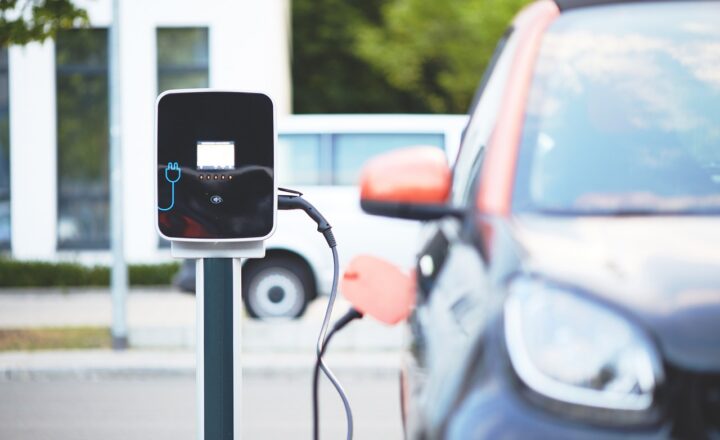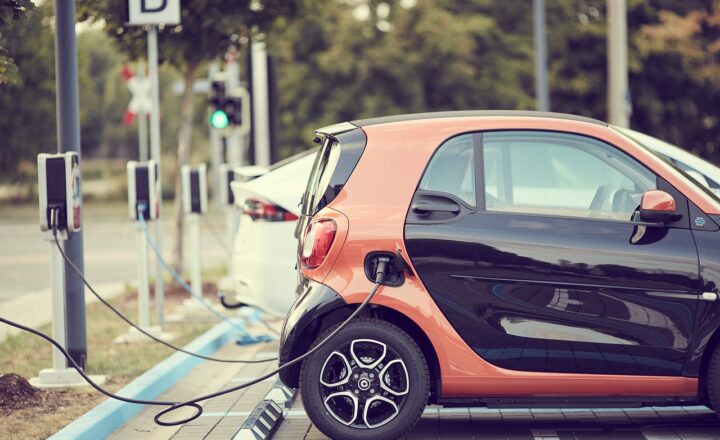Unveiling the Future of Transportation: How Electric Vehicles Are Transforming Our Roads
November 18, 2024

The transportation landscape is on the brink of a revolution, led by the growing adoption of electric vehicles (EVs). With rising concerns about climate change, urban air pollution, and the unsustainable nature of fossil fuels, electric vehicles present not just an alternative but a comprehensive solution to many transportation-related problems. This article delves into how electric vehicles are not only transforming our roads but also shaping our environment, economy, and lifestyle.
1. Understanding Electric Vehicles: What Are They?
Electric vehicles are powered entirely or partially by electricity instead of traditional fossil fuels. There are different types of electric vehicles, including:
- Battery Electric Vehicles (BEVs): These vehicles run solely on electricity and store energy in onboard batteries. Brands such as Tesla and Nissan Leaf are prime examples.
- Plug-in Hybrid Electric Vehicles (PHEVs): These vehicles combine a conventional internal combustion engine with an electric motor, allowing for both electric and gasoline-powered driving. Examples include the Toyota Prius Prime and Chevrolet Volt.
- Hybrid Electric Vehicles (HEVs): These vehicles cannot be plugged in and operate using a combination of the traditional engine and an electric motor to enhance fuel efficiency, like the standard Toyota Prius.
With advancements in battery technology, EVs are becoming increasingly efficient, capable of longer ranges on a single charge while providing a quieter and smoother driving experience.
2. The Environmental Impact of Electric Vehicles
One of the most significant benefits of electric vehicles is their potential to reduce greenhouse gas emissions. Here’s how they contribute positively to the environment:
- Reduced Carbon Footprint: As EVs produce zero tailpipe emissions, they significantly decrease air pollution, especially in urban areas where traffic congestion is prevalent. A study by the Union of Concerned Scientists highlights that an electric vehicle can cut greenhouse gas emissions by nearly 50% compared to a gasoline car over its lifetime.
- Renewable Energy Integration: The use of renewable energy sources for electricity generation, like solar and wind, further enhances the ecological advantages of EVs. As the grid becomes greener, so do the benefits from electric vehicle usage.
- Energy Efficiency: Electric vehicles convert over 77% of electrical energy from the grid to power at the wheels compared to only 12%-30% for gasoline vehicles, making them significantly more energy-efficient.
In essence, transitioning to electric vehicles is a critical step in combating climate change and promoting sustainable living.
3. The Economic Influence of Electric Vehicles
The shift towards electric vehicles can have profound economic implications, both positive and negative:
- Job Creation in New Industries: The burgeoning EV market has led to job growth in manufacturing, software development, battery technology, and charging infrastructure installations. Companies are investing heavily in EV technologies, creating careers in research and development, engineering, and renewable energy sectors.
- Autonomy of Energy Supply: As electric vehicles become mainstream, the reliance on imported oil might decrease, giving countries greater energy independence and boosting local energy production options, particularly solar and wind energy.
- Cost Savings for Consumers: While the initial purchase price of an EV may be higher than traditional vehicles, they offer lower operating costs. The cost of electricity per mile is generally lower than that of gasoline, and many EV owners benefit from state and federal incentives, tax rebates, and reduced maintenance expenses due to fewer moving parts.
The economic landscape surrounding electric vehicles is transforming rapidly, illustrating how EV adoption can lead to innovative markets.
4. Electric Vehicles and Urban Planning
As cities modernize and evolve, electric vehicles are shaping urban planning efforts in key ways:
- Redesigning Infrastructure: Planners are increasingly considering charging station installations in the design of new residential and commercial developments. The integration of EV charging infrastructure into urban environments paves the way for the burgeoning EV market.
- Traffic Management Solutions: Smart city technology incorporating EV usage data helps optimize traffic flow and reduce congestion. Fleet management for public transportation can now implement electric bus and tram systems, which allow for quieter and more efficient urban travel.
- Promoting Green Spaces: As cities reduce reliance on fossil fuel vehicles, urban planners are emphasizing pedestrian-friendly designs. Removing the necessity of parking through shared electric vehicle solutions contributes to greener public spaces and increased livability.
The accommodation of electric vehicles in urban spaces not only enhances transportation efficiency but also contributes to cleaner, greener cities.
5. Overcoming Challenges: The Road Ahead for Electric Vehicles
Despite the promising outlook for electric vehicles, several challenges remain:
- Infrastructure Development: A lack of comprehensive charging infrastructure remains a significant barrier. For EV adoption to grow, more public charging stations need to be installed, and the existing grid must adapt to handle increased demand for electricity.
- Battery Technology Advancements: While battery technology is improving, concerns regarding battery life, disposal, and costs need to be addressed further. Research into more sustainable alternatives, such as solid-state batteries, is ongoing and essential for the future of EVs.
- Consumer Awareness and Education: Many consumers remain skeptical about electric vehicles due to misconceptions. Educating buyers on the benefits and realities of EV ownership will play a pivotal role in encouraging adoption rates.
By addressing these challenges through cooperative efforts between policymakers, manufacturers, and consumers, the transition to electric vehicles can be expedited.
Conclusion: The Future of Transportation is Electric
In conclusion, electric vehicles are not merely a passing trend—they represent a paradigm shift in how we think about transportation. As infrastructure enhances, technology evolves, and awareness grows, electric vehicles will play an increasingly dominant role in our lives. The benefits they offer—from improved air quality to economic viability—make them a crucial piece in the puzzle of sustainable development. The future truly is electric, and the impacts on our roads, cities, and lives will be profound and far-reaching. Now is the time to embrace the shift towards electric transportation for a greener, cleaner, and more efficient world.





